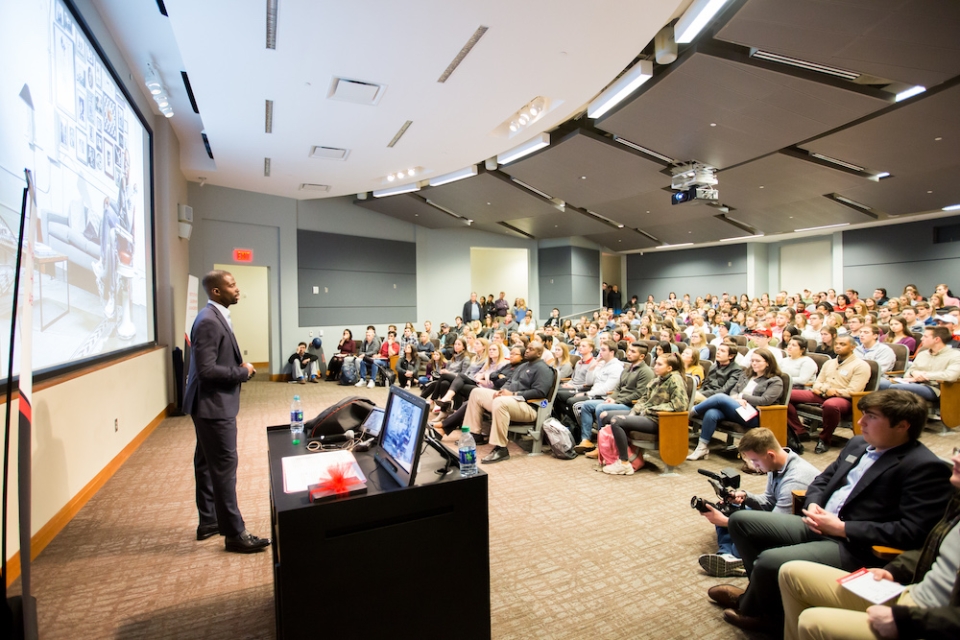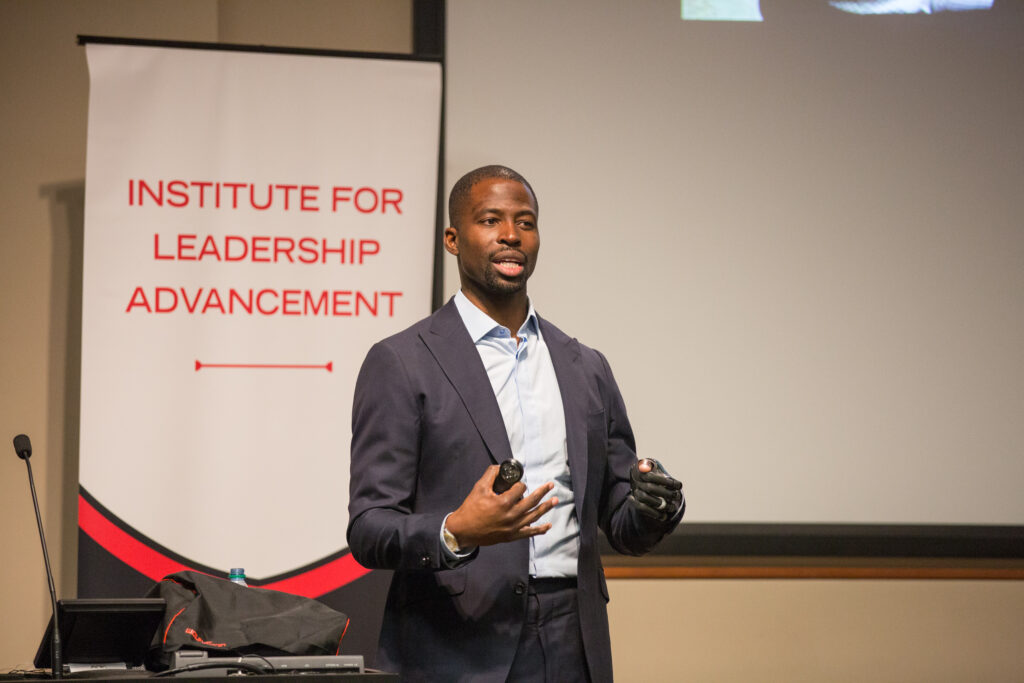Mohamed Massaquoi is a man of action. An All-Southeastern Conference wide receiver for the Georgia Bulldogs, he was a second-round pick of the Cleveland Browns in the 2009 NFL Draft. His talent catching footballs defined his career, life and identity.
Until an ATV accident changed everything.
Massaquoi, 32, told Terry students at a Diversity and Inclusion Lecture Series event Jan. 16 about the injury that led to the amputation of four fingers on his left hand and how the 2017 incident changed his life. The event was hosted by Terry’s Institute for Leadership Advancement.
“Adversity is just a part of life. Everybody’s going to have challenges and things they struggle with. But you learn there’s a reward on the other side of adversity,” he said. “There’s a huge reward if you give yourself the time to persevere and push through.”
Today, Massaquoi is enrolled in Harvard University’s Program for Leadership Development. He’s also an entrepreneur and philanthropist, focusing on helping children with prosthetics. The success comes from actions he’s taking now — the kind that didn’t come from a playbook.
“I reflected a lot about [the accident]. As I was getting lower and lower, I ended up hitting rock bottom,” he said. “The interesting thing about rock bottom is it doesn’t really move. You’re stuck with these two options: You either stay in that hard place or you build up. If you really think about being in a hard place, it’s the perfect place to build a foundation.”
Instead of dwelling on his hardships, Massaquoi called a timeout.
“I needed a rest. I understood it as an athlete, because we go through resets all the time. You can think about a computer. When you take it out of the box, it’s fresh. It doesn’t have any glitches in it. But as you use it, it starts to get glitches and you have to reset,” he said. “It’s the same with us. As an athlete, I was used to resets. There are small resets, like when the coach doesn’t like how the defense looks and wants to make a change and calls a timeout. Then there are bigger resets, like halftime. I needed a big reset.”
He started therapy, and also hit the gym, determined to gain back the 20 pounds he lost after the accident.
“I started by focusing on my mental health. People feel they can compartmentalize. They think if they just have status or finances, then everything’s going to be correct. That’s not necessarily the case,” he said. “I knew I functioned best at a certain weight, so I had to do different things to get my body back to performing where it needs to be. That meant I had to wake up at 6 o’clock. I had to eat right. I had to take care of myself.

“People don’t think about that, either,” he said. “They think if they’re really smart or have their résumé filled out the right way, things will be all right. But your body is your temple. It gives you the ability to have energy and be clear and sharp to do the things you need to do.”
He left students with two insights he learned from his accident and recovery.
“Know where you are and know where you’re supposed to be,” he said. “Being at 183 pounds has no real value without some type of context. But knowing I function best at around 200 pounds gave me a clear direction where I needed to be. Knowing where you are and where you need to be also allows you to measure. If you’re just doing random stuff, you don’t know what you’re truly progressing toward.”
Closing his talk, Massaquoi returned to building a great foundation.
“You’re going to need a very good foundation when you leave this place and go into the work world because you’re competing against so many people from all over the world,” he said. “Make sure you have a great foundation in place, and great people around you who will help you. Nothing in this world is accomplished without great relationships.

